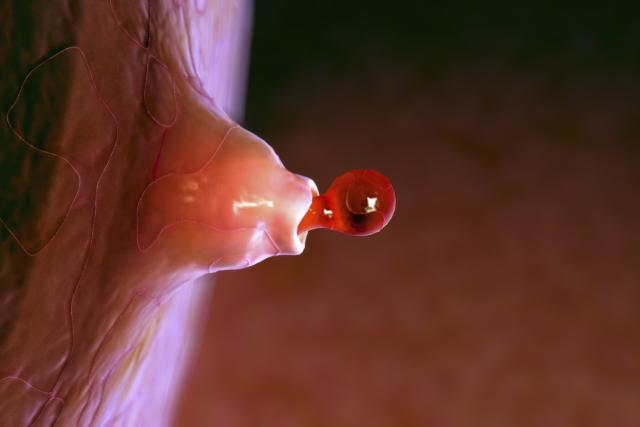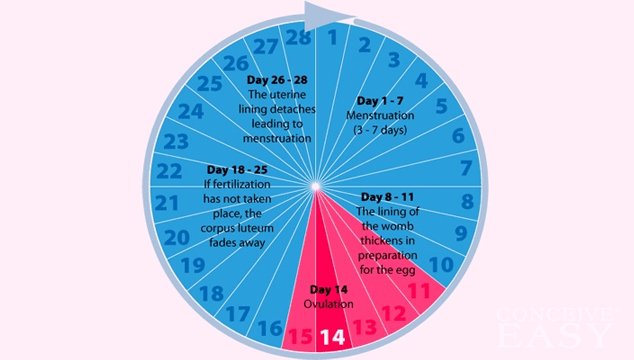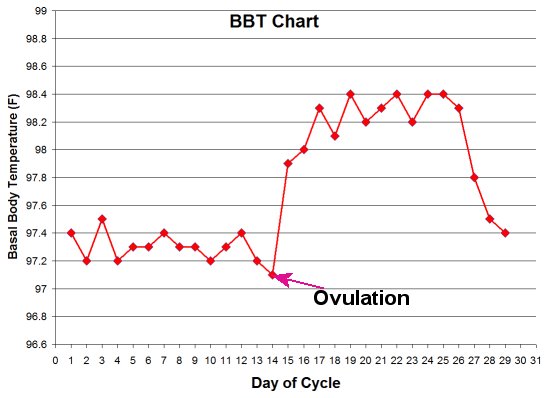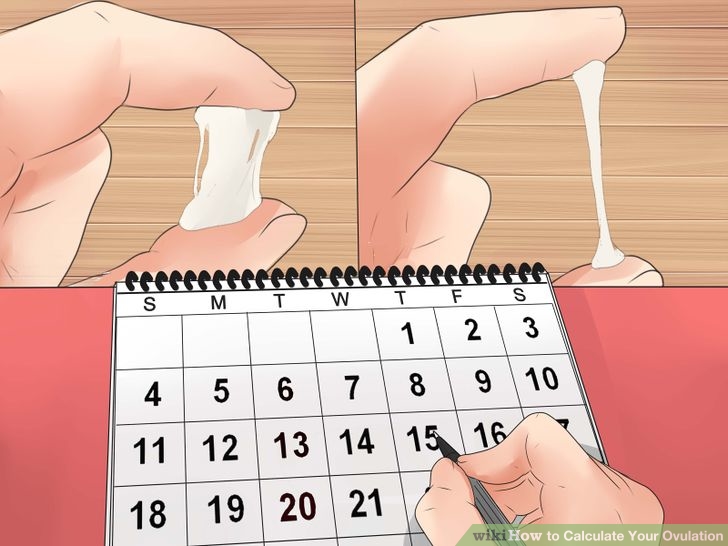As familiar as some of us are with our menstrual cycles and reproductive health, there are some women who are not as aware. So i’ll start by defining ovulation.
Ovulation is when a mature egg is released from the ovary, moves down the fallopian tube, and is available in the fallopian tube to be fertilized. Getting pregnant (and also not getting pregnant) is a consequence of ovulation, therefore it is a good idea to make be familiar with ovulation and how it works.

Ovulation usually occurs halfway through your menstrual cycle — the average cycle lasts 28 days, counting from the first day of monthly bleeding from your vagina (day one) to the first day of the next period. But as with most things, no two people are the same, so there’s a wide range of normal here (anywhere from 23 to 35 days), and even your own cycle may vary slightly from month to month.
How do you know you’re ovulating?

- Check the calendar: Keep track of your cycle by using a menstrual calendar for a few months so you can get an idea of what’s normal for you — or use tools/apps like the Sofy period app that can help you keep track of your dates. If your periods are irregular, you’ll need to be even more alert for other signs of ovulation.
- Listen to your body: For some women, your body will send you a message when it’s ovulating, in the form of a twinge of pain or a series of cramps in your lower abdominal area (usually localized to one side — the side that the egg is being released from). Called mittelschmerz — German for “middle pain” — this monthly reminder of fertility is thought to be the result of the maturation or release of an egg from an ovary. This pain is usually minor and largely goes unnoticed but if you pay close attention, you may be more likely to get the message.

- Chart your temperature: Remember during the Ebola scare when ever security guard at every institution wielded a thermometer? Well in this case you get to check your basal body temperature yourself, with a special thermometer (yes, you guessed it, a basal body thermometer), your BBT is the baseline reading you get first thing in the morning, after at least three to five hours of sleep and before you get out of bed, talk, or even sit up. Your BBT will reach its lowest point at ovulation and then rise immediately and dramatically (about a half a degree) as soon as ovulation occurs. Charting your BBT for one month will not enable you to predict the day you ovulate but rather give you evidence of ovulation after it has occurred. Charting your BBT over a few months, however, will help you to see a pattern to your cycles, enabling you to predict when ovulation will occur in future months you know just in case you’re trying to get your eggs fertilized at the right time.

- Cervical mucus, also known as cervical fluid (CF) is a perfectly natural and normal substance produced by glands in your cervix which is released into the vagina. It acts as both a barrier and a transport for sperm (depending on the phase in the cycle). Look out for changes in your mucus. Around the time of ovulation, you may notice your vagina’s mucus is clear, slick and slippery, the consistency of egg white. This is the best sign of when ovulation is actually happening.
Thanks to science, we now have an Ovulation Prediction Kit which make things way easier by checking the urine or saliva for the LH level and is able to predict ovulation the day before it occurs.
Some other minor symptoms include:
- Light spotting
- Breast tenderness
- Abdominal bloating
- Increased sex drive
- Heightened sense of smell, taste or vision
Being more aware of these symptoms can be really useful especially for women who are trying to get pregnant. And also for those who practice withdrawal as a form of contraception (which is also kind of like Russian roulette, because the fail rate is high) abstaining during ovulation might be a good idea.






5 comments
Thanks a million sofy! please keep on publishing things like this,we love you
Thanks alot i learn alot from this
Thnks a lot, I really appreciate
tks l have learnt alot from this
Tnkz a million I really luv it
Comments are closed.